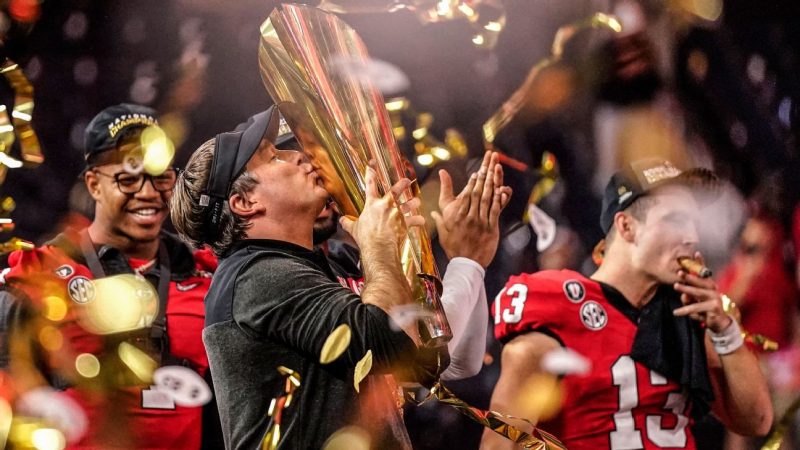
Ten years ago, Kirby Smart returned to his alma mater, the University of Georgia, to lead the Bulldogs football program. His journey has been nothing short of remarkable, marked by back-to-back national championships, multiple SEC titles, and a consistent presence in the College Football Playoff. But his story is more than just wins and losses; it’s a testament to his evolution as a coach, his ability to adapt to a rapidly changing landscape, and the unique culture he’s cultivated in Athens.
One anecdote perfectly encapsulates Smart’s intensity and the impact he’s had on the Georgia campus. A former student, living near the football facility, found solace in hearing Smart’s booming voice during practice. The sheer intensity of his coaching, audible from blocks away, provided a comforting contrast to the stresses of college life. This is a testament to the pervasive influence of Smart, both on and off the field.
Smart himself acknowledges the whirlwind of the past decade. The changes in college football—the transfer portal, NIL deals, and revenue sharing—have fundamentally altered the game. He’s had to transition from a hands-on coach deeply involved in every aspect of the game to more of a CEO, strategically managing his roster and delegating responsibilities. This evolution has been crucial to maintaining Georgia’s success amidst the new challenges.
The numbers speak for themselves. Georgia boasts an impressive 108-19 record under Smart, with more NFL first-round draft picks (20) than losses. Their dominance is further underscored by their 39 weeks at No. 1 in the AP poll (second only to Alabama), an unprecedented 29-game winning streak, and a remarkable 33-game home winning streak. These are not just numbers; they represent a legacy of consistent excellence.
But Smart’s success isn’t solely about recruiting top talent—though Georgia consistently ranks among the top programs in the nation. It’s also about fostering a team culture built on camaraderie and a shared sense of purpose. Sports psychologist Drew Brannon introduced the concept of *muditā*—finding joy in the success of others—to the team. This philosophy, emphasized on their championship rings, has fostered an unparalleled level of team unity and support.
However, the era of NIL has presented new challenges. While Georgia continues to attract top recruits, the lure of lucrative deals from other programs has made recruiting more complex. Smart acknowledges the impact of NIL, stating that it’s not just about the money but also the increased access to opportunities that can distract players from their primary goal. He has also had to address some off-field issues, including a series of high-speed driving incidents involving players.
Despite these challenges, Smart’s leadership has been instrumental in navigating the changing landscape of college football. His ability to adapt, delegate, and cultivate a strong team culture has ensured Georgia’s continued success. His focus on player development and fostering strong relationships has created a program that is as much about personal growth as it is about winning games. The future of Georgia football, under Smart’s continued guidance, remains bright, promising many more years of success and dominance.
Ultimately, Kirby Smart’s decade at Georgia is a story of remarkable achievement, strategic adaptation, and the building of a winning culture. It’s a story that’s still being written, and the next chapter promises to be just as compelling.










